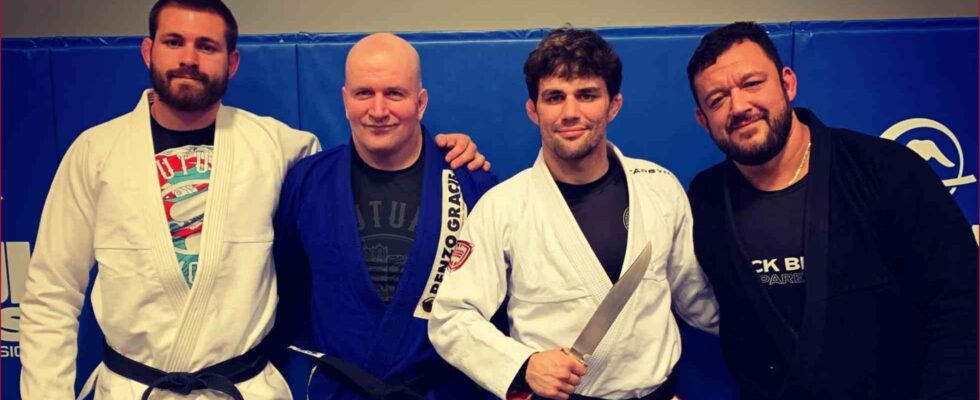In a recent podcast interview, Garry Tonon spoke about the importance of cultivating a healthy coach-student dynamic in Brazilian jiu-jitsu. He warned against treating the membership fee as purely a transactional exchange, explaining how this attitude can lead to dysfunctional environments.
Tonon emphasized that while instructors are providing a service and students are paying, the membership fee doesn’t fully capture the immense value that a good jiu-jitsu academy can provide. He said that some students nowadays approach their academy like a fast food restaurant, where they feel entitled to demand certain services just because they pay the tuition.
In Tonon’s view, this transactional mindset prevents students from fully engaging in the academy community and building meaningful relationships. It leads them to just show up, train, and leave without contributing to the broader culture.
The black belt explained that when many students treat the gym like a simple commercial exchange, it negatively impacts the instructors as well. Coaches feel less warmth and connection with their students, making them less inclined to voluntarily spend extra unpaid time helping prepare for competitions, attending events to corner, and going above and beyond in other ways.
He said: “Because if you want to make it like a f**king transaction buddy, oh this can be a transaction real f**king quick. You want to turn it into a transaction? Okay, I’m going to teach my techniques and I’m going to get the f**k out of there. I won’t hang around. I don’t have to be there, why should I have to be there? I taught my techniques I did my job. I coached you. Oh, you want more? You want to know the answer to the question about that technique that you said? Okay, hit me up for a private 500 bucks an hour. Okay, then you can get.”
Tonon believes the student attitude greatly influences the overall gym environment. If students approach training with gratitude, trust, and a desire to give back to their teammates and coaches, they will likely be met with reciprocal goodwill. This creates a positive culture where both students and instructors are inspired to contribute more.
However, when students act entitled and self-interested, treating their membership as a product they purchased, the instructors often reciprocate and adopt a cold transactional approach too. This is how dysfunctional team dynamics and toxic gym cultures can develop over time.
The elite grappler emphasized that students have the power to be a positive force within their academy by being great teammates, offering to help out, and expressing appreciation to their coaches. He says contributing to the team community in this way allows students to get the most value from their membership.
“And that’s what’s going to happen. And the whole environment becomes toxic out of that. So really, you know, even if we don’t want to point the finger at just the students. let’s point the finger at everybody. Man, if we want this thing to keep thriving the way that it has for so long and be this such this beautiful network of people coming together, be beautiful, man. Be beautiful to help the rest of the network be beautiful, you know.”
“And I know sometimes you know in an already broken system, maybe that’s a difficult thing. But only you can only really control you.”
Tonon’s perspective highlights the importance of mutual respect, communication, and community-building between coaches and students in jiu-jitsu. By avoiding transactional attitudes and entitlement, gyms can cultivate a positive culture that allows both members and instructors to thrive.

